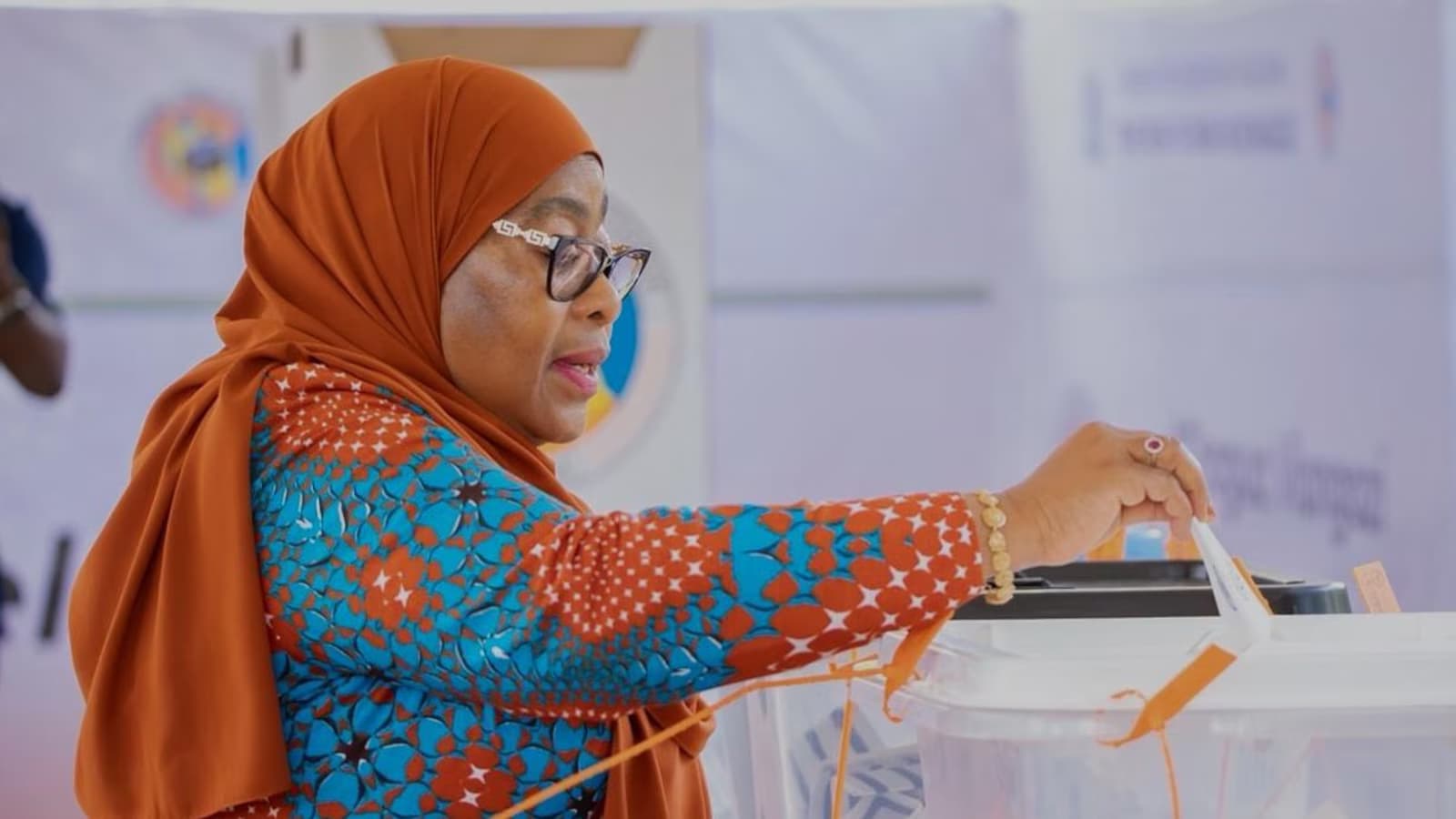We're loading the full news article for you. This includes the article content, images, author information, and related articles.
The death of a Kenyan teacher in Dar es Salaam amid a brutal crackdown on protests has intensified pressure on Nairobi and the international community to act, as Tanzania's opposition alleges over 700 have been killed.

A Kenyan national has been confirmed dead amidst escalating post-election violence in Tanzania, prompting urgent calls for an investigation by the International Criminal Court (ICC). The deceased, identified by human rights activists on Sunday, November 2, 2025, as John Okoth Ogutu, was reportedly shot and killed in Ubungo, Dar es Salaam, on Wednesday, October 29, the day of the contentious general election. Mr. Ogutu was working as a teacher at Sky Schools in Tanzania, and his body was taken to the Mwananyamala Morgue, according to Vocal Africa CEO and activist Hussein Khalid.
As of Monday, November 3, 2025, the Kenyan Ministry of Foreign Affairs had not issued an official statement regarding Mr. Ogutu's death or the broader crisis unfolding in the neighbouring country, a silence that has drawn criticism from opposition figures in Kenya. The violence also reportedly left two other Kenyans with serious gunshot wounds during protests at the Namanga border on Thursday, October 30. They were subsequently rushed to Kajiado County Referral Hospital for treatment.
The unrest erupted following the declaration of President Samia Suluhu Hassan as the winner of the presidential election with a landslide 97.66% of the vote, according to the country's Independent National Electoral Commission (INEC) on Saturday, November 1. The victory, which secures her first elected five-year term, was met with widespread protests amid accusations of a rigged process, voter intimidation, and the systematic exclusion of major opposition figures.
Key challengers, including Tundu Lissu of the Chadema party and Luhaga Mpina of ACT-Wazalendo, were barred from contesting the election. This led to demonstrators taking to the streets in major cities such as Dar es Salaam, Mwanza, and Arusha, where they were met with a heavy-handed response from security forces. The Tanzanian government has since imposed an internet blackout and curfews, making independent verification of events challenging.
There are starkly conflicting reports on the number of casualties. Tanzania's main opposition party, Chadema, alleged on Friday, October 31, that its network of monitors in hospitals and clinics had recorded over 700 deaths nationwide. A security source cited by Agence France-Presse (AFP) suggested a figure between 700 and 800. However, the United Nations Human Rights Office stated on Friday that it had received credible reports of at least 10 fatalities in three cities. The Tanzanian government has dismissed the opposition's figures as "hugely exaggerated," with army chief General Jacob Mkunda labelling the protesters as "criminals" in a statement on Thursday, October 30.
In response to the alleged atrocities, Chadema issued a formal appeal on Sunday, November 2, to the International Criminal Court and the United Nations to launch an independent investigation into what it termed "mass killings" by the state. The party accused security forces of using "unnecessary and excessive force" against peaceful protesters and alleged that police were removing bodies from hospitals to conceal evidence.
The calls for accountability have been echoed by international bodies and foreign governments. The African Union (AU) Commission Chairperson, Mahmoud Ali Youssouf, issued a statement on Saturday, November 1, congratulating President Suluhu while also expressing "deep regret" over the loss of life and urging authorities to uphold the rights to peaceful assembly and expression. The East African Community (EAC) has also called for calm and dialogue. Foreign ministers from the United Kingdom, Canada, and Norway issued a joint statement citing "credible reports of a large number of fatalities" and urging restraint. The United States has elevated its travel advisory for Tanzania to Level 3, urging citizens to "reconsider travel" due to the unrest.
President Samia Suluhu Hassan was set to be sworn in for her new term on Monday, November 3, 2025, in a private ceremony in the administrative capital, Dodoma. In a speech after receiving her winner's certificate on Saturday, President Suluhu described the protests as "unpatriotic" and vowed to "deploy security apparatus to ensure that peace prevails across the country." The crisis presents a significant challenge to stability in Tanzania and the broader East African region, raising concerns about democratic backsliding and human rights violations.
Keep the conversation in one place—threads here stay linked to the story and in the forums.
Other hot threads
E-sports and Gaming Community in Kenya
Active 8 months ago
The Role of Technology in Modern Agriculture (AgriTech)
Active 8 months ago
Popular Recreational Activities Across Counties
Active 8 months ago
Investing in Youth Sports Development Programs
Active 8 months ago
Key figures and persons of interest featured in this article